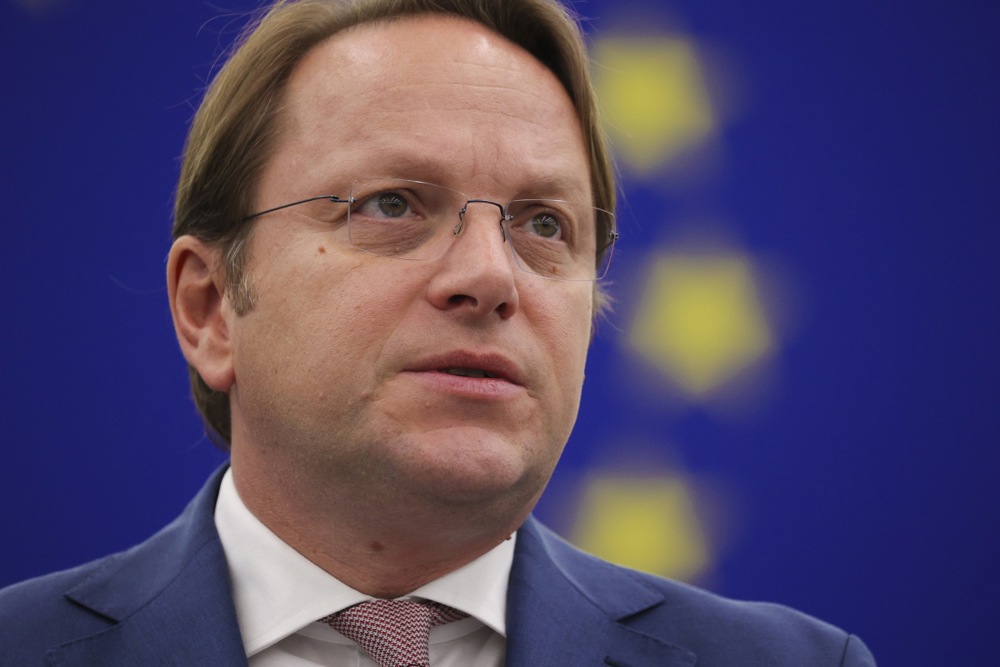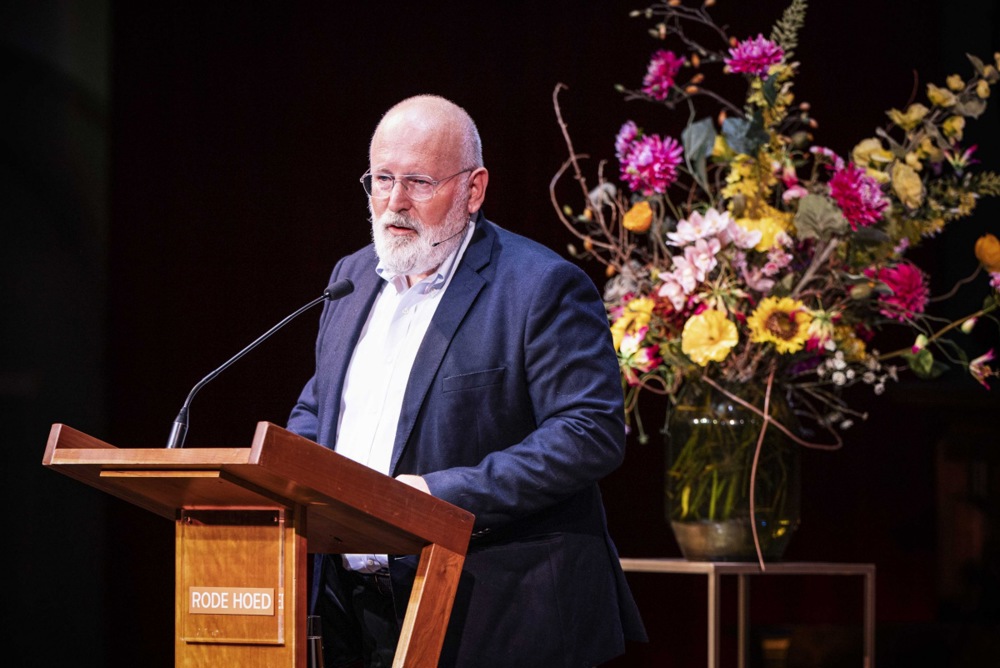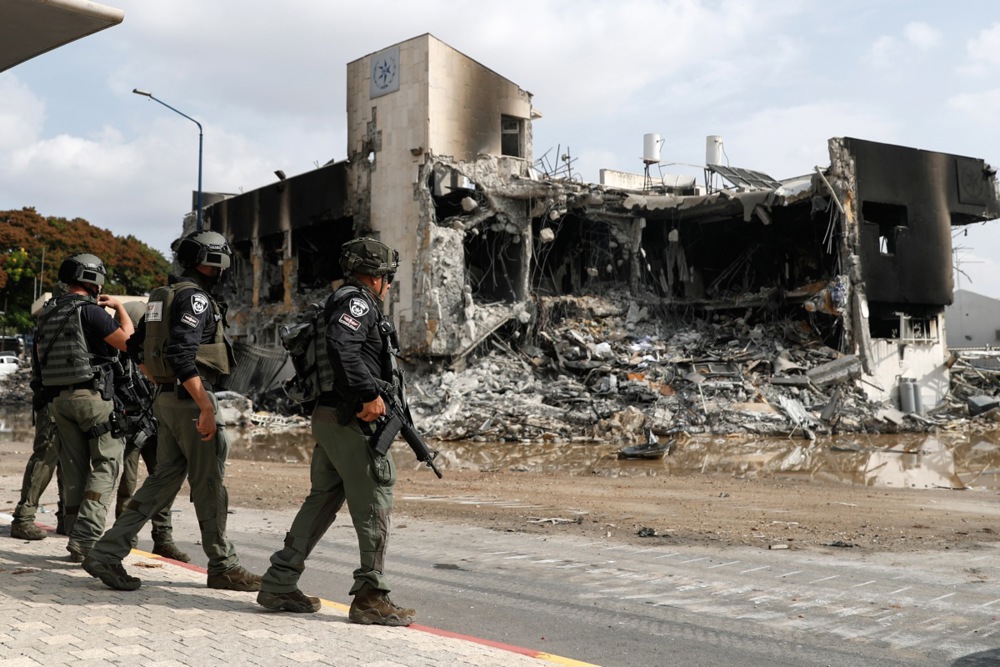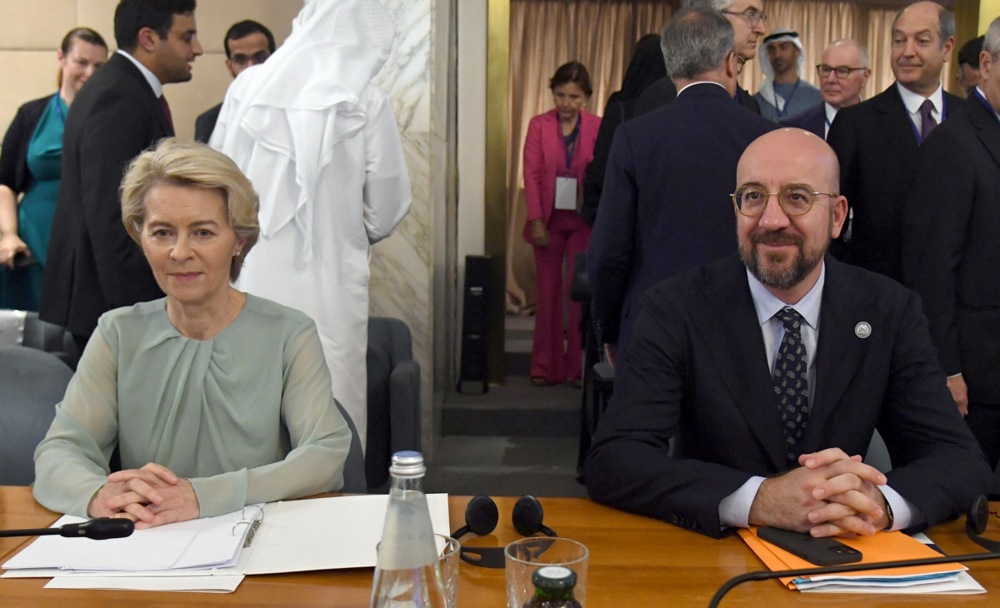While the consequences of the devastating Hamas attack against Israeli citizens are resonating across the world, the European Commission has manoeuvred itself into a tricky position.
For the moment, Brussels is fully backing Israel. Immediately after the assault on October 7, President of the European Commission Ursula von der Leyen said: “Israel has the right to defend itself against such heinous attacks.”
Now, that stance is starting to prove problematic, as many are highlighting.
In its attempt to liberate hostages held by Hamas, Israel has completely cut off the supply of basic necessities such as water, electricity and food to the Gaza Strip.
That came after Israeli defence minister Yoav Gallant ordered a “complete siege” of the region. “We are fighting barbarians and will respond accordingly,” he said.
Energy minister Israel Katz insisted: “No electrical switch will be turned on, no water hydrant will be opened and no fuel truck will enter.”
That means hospitals could run out of fuel in hours, just as Israel is heavily bombing Gaza and hundreds of thousands of Palestinian citizens are trying to flee to safety.
Despite this looming humanitarian crisis, the European Union has been slow to question the actions of Israel, to the dismay of many.
Awkwardly for the EU, videos of a speech by von der Leyen from October 19, 2022 regarding Moscow’s invasion of Ukraine has seemingly become relevant again and is being reposted online numerous times.
In that speech, von der Leyen stated: “Russia’s attacks against civilian infrastructure, especially electricity, are war crimes. Cutting off men, women, children of water, electricity and heating with winter coming – these are acts of pure terror. And we have to call it as such.”
Russia’s attacks against civilian infrastructure, especially electricity, are war crimes.
Cutting off men, women, children of water, electricity and heating with winter coming – these are acts of pure terror.
And we have to call it as such. https://t.co/3WY743k1iH
— Ursula von der Leyen (@vonderleyen) October 19, 2022
Many are critical of the fact that now it is Israel and not Russia targeting civilian infrastructure, the EU response seems far less forthright, with the bloc’s security representative Josep Borrell merely saying Israel should “respect international law”.
Among those expressing outrage at the EU’s apparent double standards, Yanis Varoufakis, a former Greek finance minister, repeated von der Leyen’s tweet, adding: “UNLESS the attacker is Israel. Then it’s NOT terror!?@?!!!”
Many accounts on X follow suit and juxtapose von der Leyen’s speech with video footage of the current situation in Gaza. Some even accuse the EC chief of racism and prejudice as they point to the difficulties now faced by the Palestinians.
Asked repeatedly about the seeming disparity regarding the EC’s reaction to Russia’s behaviour in Ukraine and Israel’s in Palestine, the EC insisted to journalists that there was a difference.
Peter Stano, lead EC spokesman for external affairs, said Ukraine was the victim of an unprovoked war, while Israel is reacting to an abhorrent terrorist attack, similar to the savagery of the worst crimes of the Islamic State.
He further noted: “The EU is calling for the stopping of the aggression, especially from Hamas, as rockets are still being fired today.”
Stano added that Israel has the right to defend itself, while claiming it should still adhere to international law.
Journalists did not seem convinced and the same questions about the ending of what many said were war crimes kept cropping up.
On October 11, Human Rights Watch said: “Standing against Hamas’ assault does not require cutting off vital lifelines for the Palestinian people.”
Similar sentiments seem to exist across Europe, with some Member States and political factions on the Left sympathising strongly with the Palestinians.
Such stances already forced the EC to backtrack over Commissioner for Neighbourhood and Enlargement Oliver Varhelyi’s announcement to pause aid to Palestine on October 9 in response to the Hamas attacks on Israel.
He insisted at the time that all payments to the Arab-controlled territory had been “immediately suspended” due to the assault. That spurred pro-Palestinian states within the EU to react vehemently, with Spain, Portugal, Luxembourg and Ireland all publicly rebuking the decision.
In response, the EC then declared no such suspension of aid would take place.





